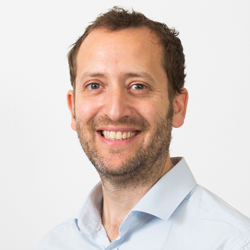Location:
Berg Family Foundation Seminar Room, Level 6, Wallace Wurth Building, Kensington Campus, UNSW Sydney
Contact for enquiries
Rata Joseph, +61 (2) 9385 0900 or recpt@kirby.unsw.edu.au
Kirby Institute Seminar Series presents
 |
Professor of Cell Biology and Infectious Diseases, Imperial College London, UK |
About the speaker
Following Bachelors (1993-1996) and Masters (1997-1998) degrees at Oxford University, Professor Baum received his PhD from the London School of Hygiene and Tropical Medicine in August 2002, his thesis focused on malaria parasite population genetics. In 2003, he moved to the Walter and Eliza Hall Institute in Melbourne, Australia to work on the fundamentals of malaria parasite molecular and cellular biology. During this postdoctoral tenure under the mentorship of Professor Alan Cowman, Baum worked on several projects relating to parasite invasion of the red blood cell, work that included the discovery of PfRH5, currently the lead-of-field developmental blood-stage malaria vaccine to which he is a named inventor. Following a visiting fellowship at Yale University in the pioneering lab of Thomas Pollard, a global leader in cytoskeletal biology, Baum established his own independent lab at the Hall Institute in 2010, applying super resolution and electron microscopy to the study of parasite invasion and cytoskeletal processes. In 2013, Baum was recruited back to the UK by Imperial College as a tenured Reader in Parasite Cell Biology and simultaneously awarded an Investigator Award from the Wellcome Trust to fund his work.
In 2017, Baum was promoted to Professor of Cell Biology and Infectious Diseases in recognition of efforts at the cutting edge of malaria science, teaching and leadership at Imperial College. Professor Baum's laboratory has a diverse research portfolio including major programmes in drug discovery, funded by the Medicines for Malaria Venture and Bill and Melinda Gates Foundation, programmes at the interface between biophysics (fundamental science), engineering (digital diagnostics for malaria) and cell biology, funded through the Human Frontier Science Program, Wellcome and the EPSRC and major links with industry (GSK) and field work (MRC-Newton funded collaborative work with Mahidol University) on anti-malarial drug resistance. In addition to running his interdisciplinary lab and coordinating cell biology courses for undergraduates, Professor Baum is also the current head of the Imperial College Network of Excellence in Malaria Research, which he founded in 2017 representing more than 100 researchers. Professor Baum has published >60 papers and is a recognised leader internationally in cellular parasitology, antimalarial drug discovery and inter-disciplinary cell biology.
Abstract
Almost half a million children still die from malaria disease each year. Whilst there have been decades of success in slowly reducing the total burden of death and disease, and even talk of an eventual global eradication of malaria, in 2017 progress stalled. At this juncture, faced with a rising tide of resistance to insecticides by the mosquito and resistance to front line antimalarial drugs by the Plasmodium parasite (the causes of disease), world health authorities are calling out for science innovation in the fight against malaria; new technologies, approaches and ideas are desperately needed to make eradication an achievable goal. Work in the Baum laboratory is focussed on understanding fundamental cellular processes of the Plasmodium parasite - from lifecycle progression and cell movement, to sub-cellular imaging and biochemistry - and translating these insights into realistic avenues that might yield new drug treatments, new innovative diagnostics and an eventual vaccine against malaria. Front and centre of much of this work is Anton van Leeuwenhoek's sword, the microscope! It harnesses the power of light to gain insights into how parasite cells work, from the whole cell right down to single atoms.
